Timeline of emergency martial law under Yoon Suk-yeol
December 3
22:28: President Yoon Suk-yeol declared a state of emergency and imposed martial law from the Yongsan Presidential Office.
22:30: About 10 martial law soldiers entered the National Election Commission building in Gwacheon. 22:43: Minister of Defense Kim Yong-hyun convened a meeting of key military commanders.
22:49: Lee Dong-hoon, the leader of the People Power Party, stated, “The declaration of emergency martial law is incorrect.”
22:56: Lee Jae-myung, the leader of the Democratic Party, described the declaration as “unconstitutional” and urged citizens to gather at the National Assembly.
23:25: General Park An-soo was appointed as the martial law commander, and the first proclamation of the martial law command was issued.
23:48: About 230 armed soldiers enforcing martial law began entering the grounds of the National Assembly via helicopter.
December 4
00:07: Martial law troops attempted to enter the main building of the National Assembly.
00:45: Martial law troops blocked the entrance to the National Assembly’s main building and set up barricades.
01:01: The National Assembly passed a resolution to lift the emergency martial law, receiving unanimous support from all 190 members present.
01:15: National Assembly Speaker Woo Won-sik demands the immediate withdrawal of soldiers from the National Assembly.
01:45: Martial law troops began withdrawing from the National Assembly.
04:30: President Yoon Suk-yeol approved the lifting of martial law during a Cabinet meeting. 05:40: President Yoon Suk-yeol announced the lifting of martial law.
Martial law is an emergency power of the state, granted as a constitutional authority to the president. It allows for the suspension of certain constitutional provisions and the activation of military power to maintain public order during times of war, national emergencies, or situations deemed equivalent. Martial law is considered a last resort to protect the nation’s existence and the safety of its citizens. When implemented, it may limit some fundamental rights of the people, necessitating very careful judgment before proceeding.
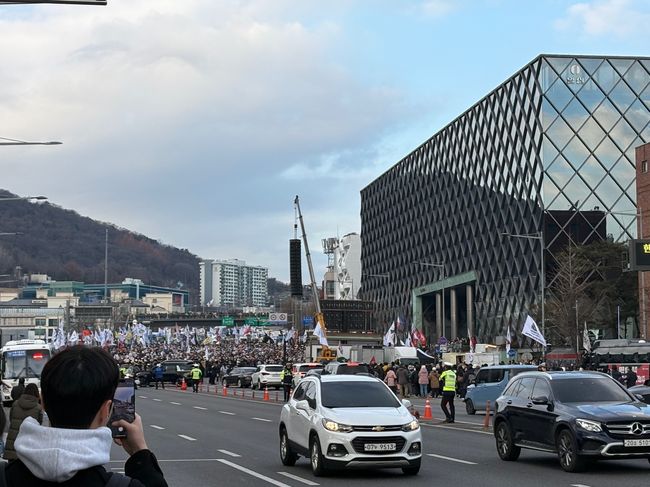
Since the establishment of the Republic in 1948, martial law has been declared 17 times in South Korea. Each declaration was a response to national crises, but many instances also resulted in political controversy and social conflict. The most recent occurrence took place on December 3, 2024, when emergency martial law was declared, marking a significant event in modern constitutional history. President Yoon justified this declaration on the grounds of national security and the maintenance of public order, yet it ignited public debate and criticism, underscoring the necessity for a reevaluation of the country’s emergency response system.
The South Korean government has declared martial law in response to large-scale protests and violent incidents, which have made maintaining public order difficult. The government stated that this measure was necessary to restore public order and stabilize society, as the rising security threats to key facilities and concerns for citizens’ safety became pressing issues. Martial law has been enforced nation wide, including in major metropolitan areas such as Seoul, Busan, Incheon, and Daegu, with heightened security in densely populated regions and critical infrastructure. Following the declaration, several restrictive measures were implemented. All forms of gatherings and protests were banned, and a decision was made to prioritize public order, which sparked controversy for limiting citizens’ freedom of expression. Additionally, media censorship was intensified, affecting major broadcasters and internet portals. The government aimed to prevent the spread of false information and illegal content, but concerns about infringing on press freedom remain. A curfew was also imposed, restricting movement after 10 PM, which, while deemed necessary for public safety, significantly impacted daily life. Military forces were deployed to secure key public institutions, power, communications, and financial facilities, raising concerns about the expansion of military involvement.
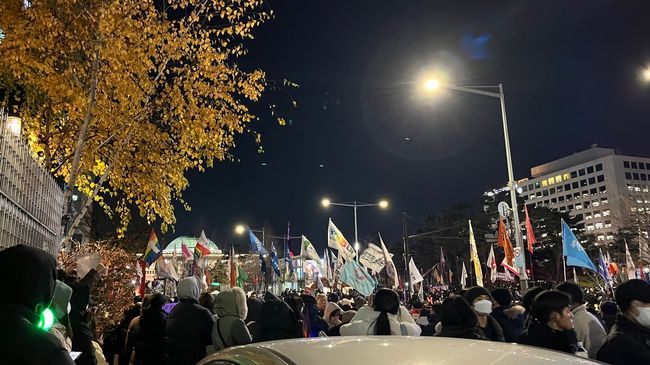
The news of martial law was reported as breaking news by major international outlets like CNN and BBC, which viewed it as a critical test of South Korea’s democracy. International media expressed concern that martial law could limit citizens’ rights and freedoms, posing a threat to democratic processes. Western countries that value democratic procedures and the rule of law voiced their concerns, warning that martial law could undermine South Korea’s political and social foundations. International organizations like the UN and EU urged the South Korean government to adhere to democratic procedures, while the U.S. State Department emphasized the need for legal processes and respect for citizens’ rights. This global reaction serves as an indicator of how the government’s actions are perceived internationally. Also, opinions among foreign experts varied. Some argued that martial law was a necessary measure to maintain order, considering the circumstances at the time. However, there were also concerns about the long-term negative impact on the country’s image, particularly the potential harm to South Korea’s reputation as a democratic nation.
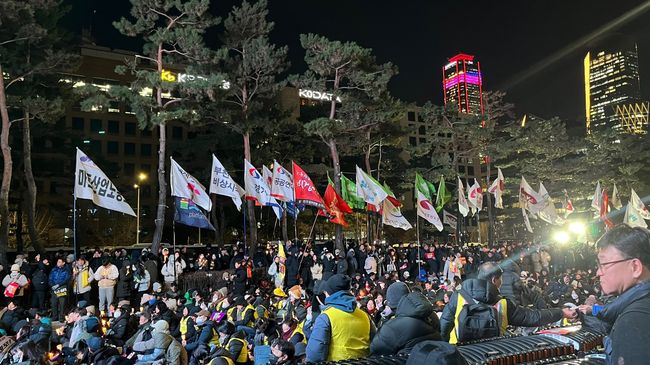
The strict measures under martial law could deepen political conflicts, weaken trust between the government and civil society, and complicate the domestic political landscape. While the measures may be seen as unavoidable during a crisis, the political fallout is expected to be significant. The restrictions on economic activities and disruptions to daily life could lead to economic uncertainty, with foreign investors likely to approach investments in South Korea with caution. Increased volatility in foreign exchange and stock markets could also affect economic stability, potentially hampering growth and South Korea’s position in the global economy. As international criticism of democratic regression mounts, South Korea’s global credibility could suffer, potentially affecting economic cooperation and diplomatic relations.
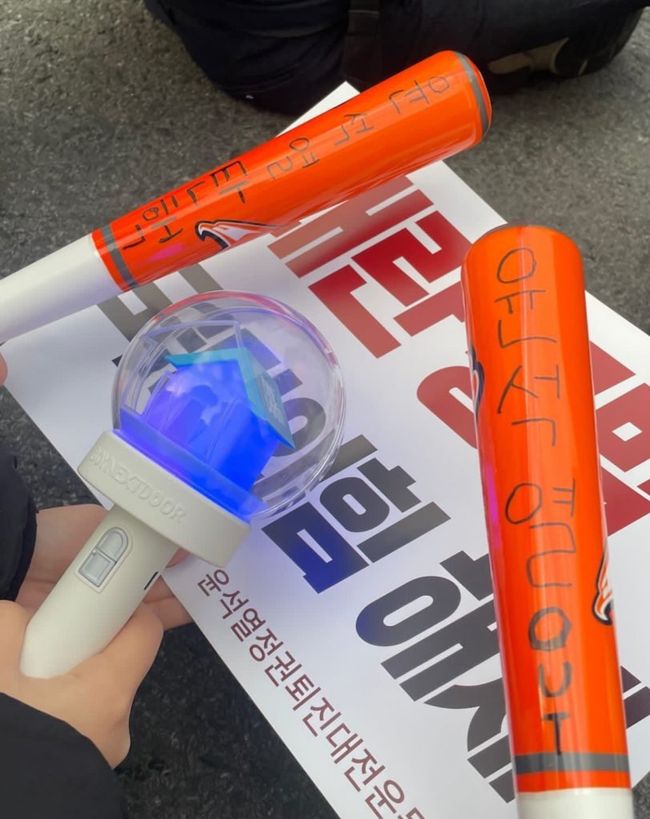
Despite the growing concerns at home and abroad, the impeachment of President Yoon Suk-yeol introduced a new culture of protest by using peaceful means. While in the past most citizens held candlelight vigils, in the last 8 years, colorful idol cheering sticks have caught people’s eyes. Especially, women between the ages of 20-30 set a new trend for demonstrations by incorporating fandom culture with light sticks of their favorite idols, sharing the same interests, and taking photos together. In addition, the impeachment demonstration of Yoon Suk- yeol became the meeting place for the whole generation. The latest K-pop music has been used as a chant, which led to the creation of a “Protest Playlist,” featuring both popular songs enjoyed by the older generation and the latest hits, which became a sensation and surpassed 200,000 views on YouTube. Citizens who were unable to participate in the protest area paid in advance for drinks and meals at coffee shops or restaurants by the National Assembly, adding solidarity.
Paragraph 2 of Article 1 of the Republic of Korea indicates that the sovereignty of the Republic of Korea shall reside in the people, and all state authority shall emanate from the people. It emphasizes that its ultimate purpose is to respect the will of all the people and to protect democracy. Martial law isn’t anarchy but a necessary measure during a national emergency. It is a last resort for maintaining national stability and order, requiring careful and responsible use. Millions of South Koreans have made the effort to strengthen democracy and promote the healthy development of society. People welcome and unite including the disabled, women, and LGBT people, and lead the way toward the development of a healthy society. President Yoon Suk-yeol’s December 3, 2024 declaration of martial law will be remembered in history. South Korea’s democracy will mature based on lessons from the past, and the people will continue to fulfill their role as sovereign.
Planning & Marketing Editor • LEE CHAE EUN • leechaeeun0318@naver.com
81st Reporter • AN KEUM HYUN • angeumhyun1@gmail.com
82nd Cub Reporter • KIM JI YUL • jiyulkim815@naver.com
 Freedom Given to Youth: An Opportunity for Choice or a Burden of Constraint?
“Are we truly free today?” Classical literature is far more than time-honored stories. It offers profound insights into human nature and society that transcend time, remaining a valuable resource for examining the challenges our world faces today. This article will draw on George Orwell’s 1984 and Charles Dickens’ Oliver Twist to explore the contemporary issues of youth housing and the emergence of a surveillance society ...
Freedom Given to Youth: An Opportunity for Choice or a Burden of Constraint?
“Are we truly free today?” Classical literature is far more than time-honored stories. It offers profound insights into human nature and society that transcend time, remaining a valuable resource for examining the challenges our world faces today. This article will draw on George Orwell’s 1984 and Charles Dickens’ Oliver Twist to explore the contemporary issues of youth housing and the emergence of a surveillance society ...

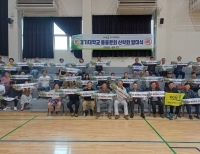 [단신] 산악회, 본교 동문의 버팀목이 될 수 있도록
[단신] 산악회, 본교 동문의 버팀목이 될 수 있도록
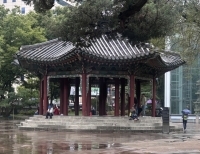 [사회메인] 노인 인구 1,000만 시대, 준비 없는 사회가 불안해
[사회메인] 노인 인구 1,000만 시대, 준비 없는 사회가 불안해
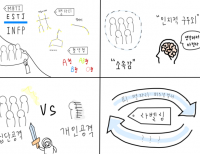 [네컷만화] 라벨링 문화
[네컷만화] 라벨링 문화
 [진리터] 결국 우리 모두 돌아볼 것이니
[진리터] 결국 우리 모두 돌아볼 것이니

 목록
목록














